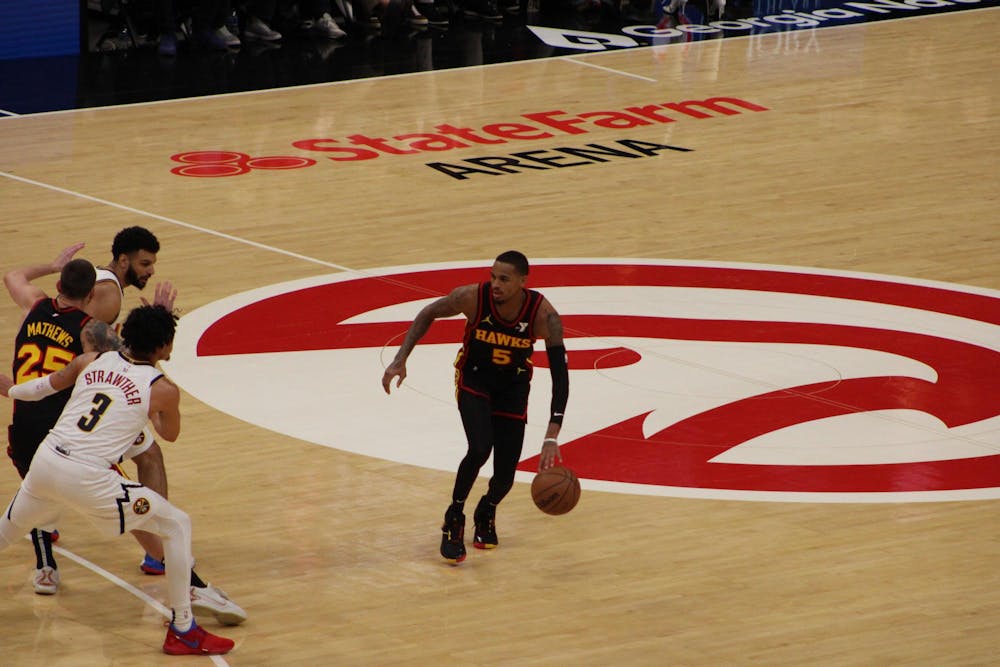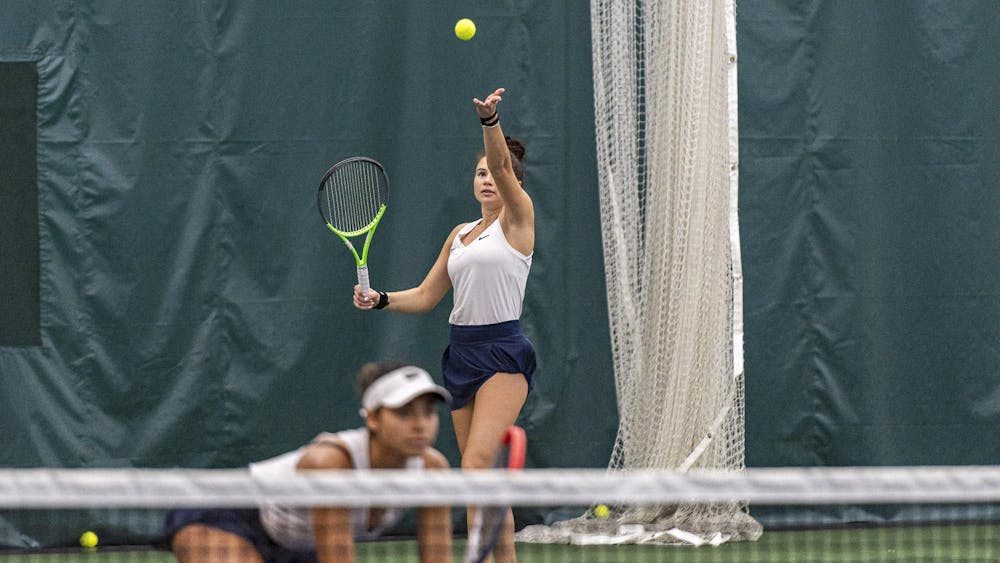The Atlanta Hawks became one of the first major sports teams in 2020 to transform their venue into a polling location, utilizing State Farm Arena as an early voting location for the Georgia primary runoff election and early voting for the general election. This practice became commonplace across the NBA in 2020 due to agreements between the NBA and the National Basketball Players Association on social justice initiatives after the onset of the COVID-19 pandemic and a league-wide protest to stop play following the shooting of Jacob Blake. Ultimately, 48 stadiums across major sports leagues became voting locations for the 2020 presidential election. However, for the 2024 general election, State Farm Arena is not a polling location and the number of stadiums open for voting is closer to 15.
While the need for locations with ample space is no longer as prevalent as it was during the pandemic, a study from the Civic Responsibility Project on sports venues used as polling places found that “sports facilities make excellent polling sites and team involvement in promoting voting is uniquely helpful in sharing the importance of participation.”
From a purely logistical standpoint, stadiums and arenas are perfect for large-scale events like voting. They are often centrally located in downtown areas with plenty of space for parking and easy public transportation access. State Farm Arena, for example, offered voters free parking in 2020 and has a MARTA train station directly outside the venue.
All of these accessibility benefits have positive effects on voters’ experiences. In 2020, those who voted at State Farm Arena waited an average of 26 minutes to cast their ballot, whereas some other polling locations in the county experienced wait times that averaged four hours.
The Civic Responsibility Project study reported that the location and public transportation benefits were even underutilized at sports venues used for voting in 2020. With more people commuting to downtown areas for work and less hesitancy to use public transportation now than during the height of the pandemic, these sports venues could have seen an uptick in use for the 2024 election cycle compared to pandemic levels had they been used.
Teams also stand to benefit from this arrangement. Many teams’ staff members volunteered as poll workers and enjoyed helping the communities they work in, according to the Civic Responsibility Project study. Not only that, but team staff and ownership’s commitment to serving their community strengthened their relationships with local election officials, evidencing that they can continue to work together to use sports venues for elections in the future.
The enthusiasm sports teams generate for their fanbase coincides with the enthusiasm they can drum up for voting. The study lists numerous examples of teams providing voters with a typical sports fan experience, including sharing “I Voted” selfies on jumbotrons, during the voting process. At Lucas Oil Stadium, Indianapolis Colts players handed out t-shirts and stickers to voters, and Washington D.C. voters could take pictures with the Washington Nationals’ World Series Championship trophy while at Nationals Park.
Teams should get comfortable being involved, as voting access should be a nonpartisan initiative. Citizen support for using stadiums to vote is clear, with a survey included in the Civic Responsibility Project report finding that 77% percent of total respondents strongly or somewhat supported the use of stadium voting.
In future elections, leagues should step up to avoid scheduling conflicts surrounding Election Day and make sure they open up stadiums to aid in voting efforts. Other leagues should follow the example of the NBA, which is not scheduling games on Election Day, instead shifting their focus to sharing resources and information from voting organizations. Additionally, NFL and MLB stadiums are seemingly perfect fits for general elections, as the NFL does not play games on Tuesdays and nearly every MLB ballpark is no longer in use by early November.
Opponents of stadium voting would be hard-pressed to find drawbacks. The venues make voting quicker and more accessible to voters. Teams also provide enthusiasm and can capitalize on new community engagement initiatives. The findings are clear: Voting access is a nonpartisan issue and teams should confidently support measures to increase voting accessibility without fear of political backlash.
While the use of sports venues will be more limited in this year’s election cycle, going forward, teams should exchange foam fingers for “I voted” stickers, swap basketball hoops for ballot boxes and open their doors to voters who want to make their voices heard.






